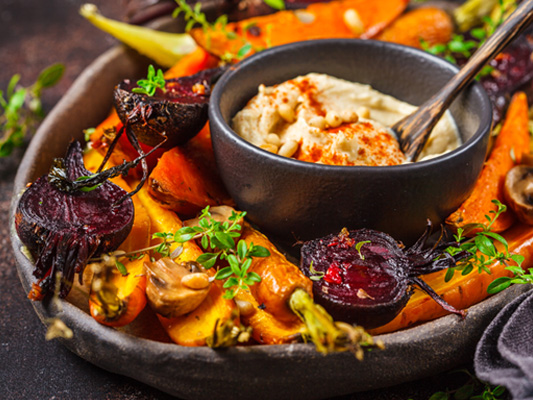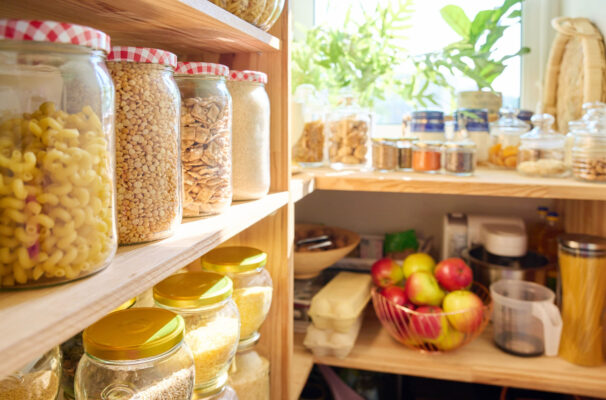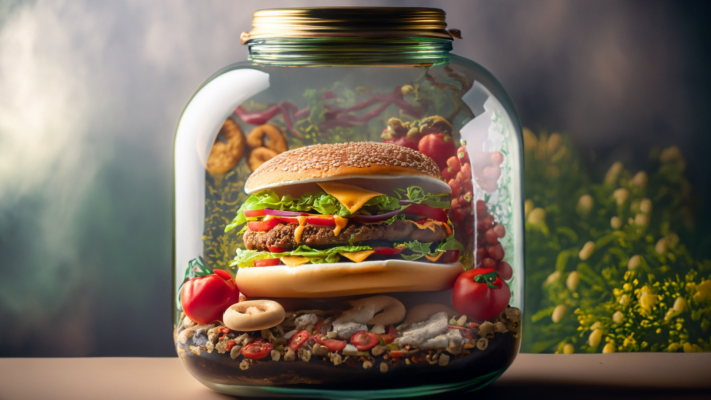Nourishing Your Inner World
Food is more than just sustenance; it’s an essential element of our lives, a source of joy and connection, and a way to express our love and creativity. But with the constant barrage of conflicting dietary advice, it’s easy to become overwhelmed and lose sight of what truly matters when it comes to nourishing our bodies and minds. It’s time to fall back in love with food by making decisions based not only on taste, but also on what our bodies need and want.
Navigating the world of food has become a complex and sometimes daunting endeavor. As we’re bombarded with conflicting food theories and diet trends – vegan vs. carnivore, vegetarian vs. omnivore, high fats vs. high carbs, the fruit-gate and glycemic index debate 🤦🏼♀️, calorie counting, glucose levels, and so on – it’s no surprise that many of us are left feeling confused and overwhelmed. Amidst all the noise, there’s one thing that’s crystal clear: we need to bring vegetables back into our lives, but we need to do it in the healthiest way possible. But not all vegetables are created equal, so here are two key principles I would like to bring to the forefront:
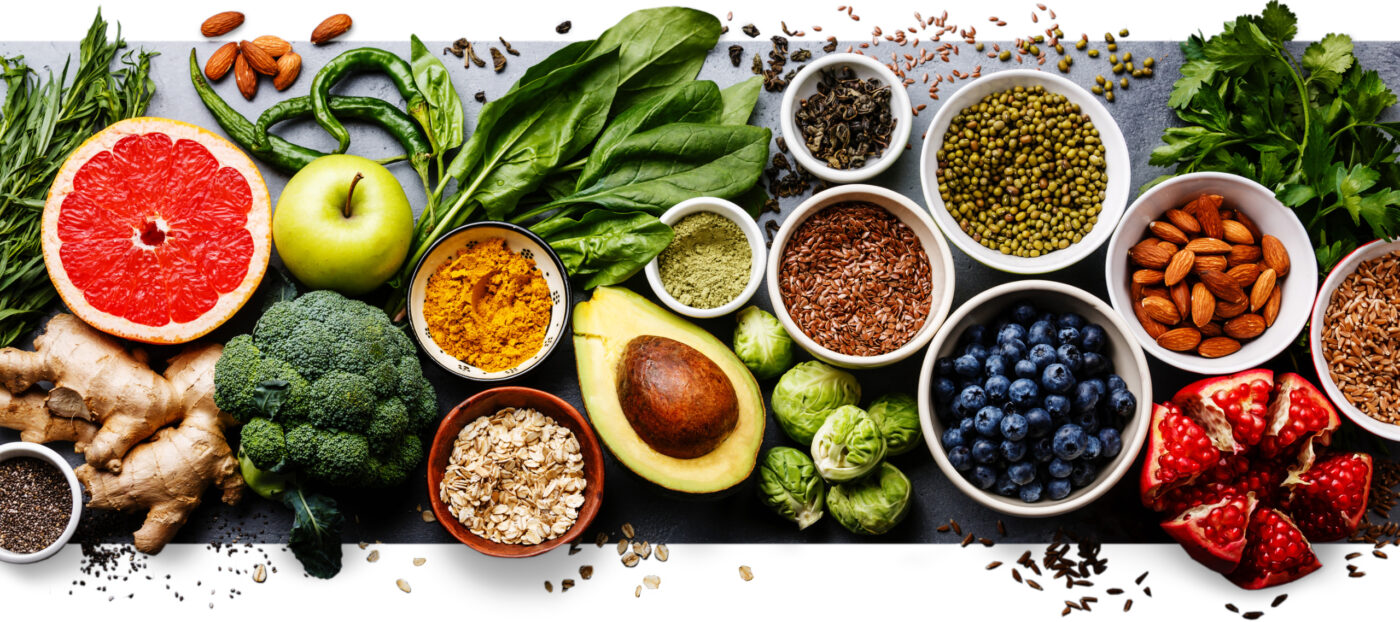
1. Prioritize organic over conventional
Whenever possible, go organic. Pesticides often sprayed on conventional vegetables are endocrine disruptors, which can create hormonal imbalances, particularly for women. Moreover, pesticides can harm our gut microbiome – that bustling community of microorganisms in our gastrointestinal tract responsible for digestion, metabolism, immune function, and overall health. Pesticide exposure can lead to a disrupted gut microbiome (dysbiosis), which has been linked to various diseases, including inflammatory bowel disease, obesity, and type 2 diabetes. It can also disrupt our immune system’s delicate balance and increase susceptibility to certain diseases.
✧ Pesticides and endocrine disruptors
So, you know how pesticides are used a lot in farming to keep bugs, weeds, and diseases away from crops? Well, the thing is, many of these pesticides have chemicals that can mess with our endocrine system, which is in charge of making and controlling hormones in our bodies. And hormones? They’re super important for all sorts of stuff, like growth, metabolism, reproduction, and even how we handle stress.
Now, when we’re exposed to these endocrine-disrupting chemicals from pesticides, it can cause our hormones to go haywire and lead to various health problems. This is especially true for women, as these chemicals have been linked to issues like reproductive troubles, breast cancer, and other conditions that are sensitive to hormone levels (1,2).
✧ Pesticides and the gut microbiome
The gut microbiome is this amazing little world of tiny organisms, like bacteria, fungi, and viruses, that live in our gastrointestinal tract. They’re super important for things like digestion, metabolism, immunity, and just keeping us healthy in general (3).
Now, it turns out that exposure to pesticides isn’t great for our gut microbiome. In fact, research shows that pesticides can mess with the balance and variety of these tiny organisms, causing what’s called dysbiosis (4). And dysbiosis? Not good news. It’s been linked to a bunch of health issues, like inflammatory bowel disease, obesity, and type 2 diabetes (5,6).
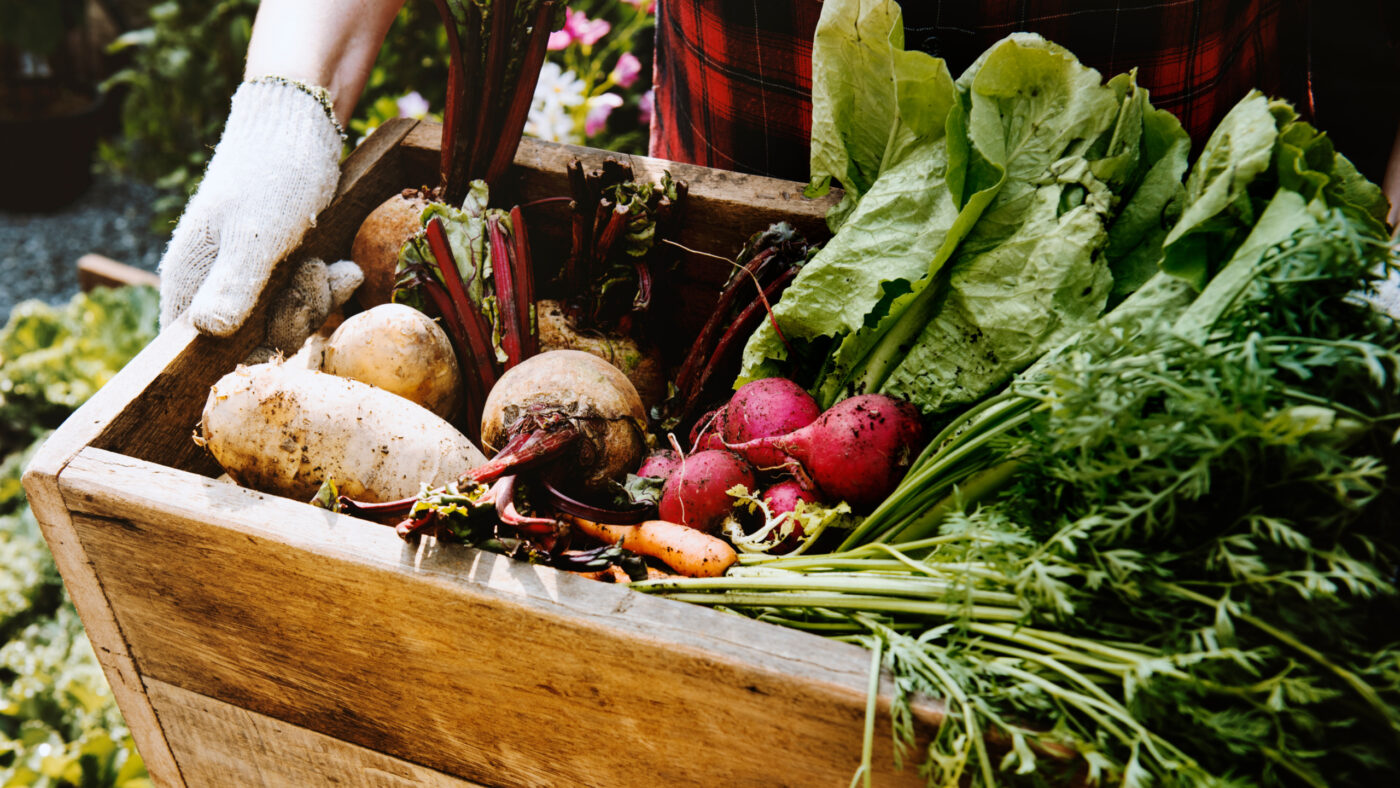
And there’s more. Pesticides can also affect how well our gut microbiome interacts with our immune system. Usually, a healthy gut microbiome helps keep our immune system in check, protecting us from harmful germs while making sure it doesn’t go overboard. But when pesticides come into play, they can throw off this delicate balance, potentially leading to wonky immune responses, more inflammation, or even a higher risk of autoimmune disorders (7).
🤓 Strategies to reduce pesticide exposure and promote gut health:
- Go organic when you can: Picking organic fruits and veggies means you’re getting produce without synthetic pesticides, so you’re dodging those endocrine disruptors and other nasty chemicals.
- Give your produce a good wash: Scrubbing fruits and vegetables helps get rid of pesticide residues, dirt, and bacteria. Grab a veggie brush for stuff with tough skin, like apples and potatoes.
- Mix it up: Eating a wide range of fruits, veggies, and plant-based foods supports a diverse and healthy gut microbiome, making it stronger against disruptions from pesticide exposure.
- Probiotics and prebiotics are your friends: Foods packed with probiotics (like yogurt, kefir, and sauerkraut) and prebiotics (onions, garlic, bananas) help keep your gut microbiome in tip-top shape by boosting the growth of good bacteria.
- Stay in the know: Keep up with the latest research and advice on pesticides and their health effects. Check out the Environmental Working Group’s (EWG) yearly “Dirty Dozen” (8) and “Clean Fifteen” (9) lists for the lowdown on produce with the highest and lowest pesticide residues.

The Dirty Dozen is a list of 12 fruits and vegetables with the highest levels of pesticide residues, according to the Environmental Working Group (EWG). This list is updated annually based on the latest data available from the U.S. Department of Agriculture and the Food and Drug Administration.
- Strawberries
- Spinach
- Kale, collard, and mustard greens
- Nectarines
- Apples
- Grapes
- Cherries
- Peaches
- Pears
- Bell and hot peppers
- Celery
- Tomatoes
The Clean Fifteen is a list of 15 fruits and vegetables with the lowest levels of pesticide residues, according to the Environmental Working Group (EWG). This list is also updated annually based on the latest data available from the U.S. Department of Agriculture and the Food and Drug Administration.
- Avocado
- Sweet corn
- Pineapple
- Onion
- Papaya
- Sweet peas (frozen)
- Eggplant
- Asparagus
- Broccoli
- Cabbage
- Kiwi
- Cauliflower
- Mushrooms
- Honeydew melon
- Cantaloupe
So, to wrap it up, cutting down on pesticides and keeping our gut microbiome in tip-top shape is super important for our overall well-being. By being smart about the fruits and veggies we eat and using some simple tactics to boost our gut health, we can dodge the potential dangers linked to pesticides and those pesky endocrine disruptors.

2. Embrace diversity
Break free from the monotony of eating the same vegetables repeatedly and instead explore the vast array of produce available. Our gut microbiomes thrive on diversity, and by consuming a wide variety of vegetables, fruits, and greens, we provide our bodies with essential nutrients, dietary fiber, and anti-inflammatory properties1. A diverse gut microbiome is more resilient and adaptable, reducing the risk of developing chronic diseases and promoting overall health (9).
Eating the same vegetable day in and day out might seem innocent enough, but it’s not doing our gut any favors. Our gut microbiome thrives on diversity (10). So, mix up those salads and try new vegetables – even those you might’ve previously considered “boring” or “unhealthy”, as long as they’re organic. For example, if you’re hooked on red peppers, why not try yellow, orange, and green peppers too? Each color offers different microbes, minerals, and nutrients (11).
Embracing a diverse range of vegetables, fruits, and greens is essential for a healthy gut microbiome and overall well-being 12. A diverse diet offers several benefits, including nutrient diversity, dietary fiber, improved gut microbiome diversity, reduced inflammation, and disease prevention 13. To maximize these benefits, aim to include a wide variety of colorful fruits, vegetables, and greens in your diet. Choose seasonal and locally grown produce when possible for the freshest, most flavorful, and nutrient-dense options 14. Don’t be afraid to experiment with new fruits and vegetables and explore new recipes to keep your diet diverse and enjoyable 15.
By going for organic produce, giving your fruits and veggies a good wash, mixing up your diet, and munching on probiotics and prebiotics, you’ll be doing your gut microbiome and overall health a huge favor, keeping those pesticides and endocrine disruptors at bay. Staying in the loop on the latest research and recommendations can also help you make the best choices for a healthier you.
Keep in mind that everyone’s gut microbiome is different, and how we react to our diets and environment can vary. If you’ve got concerns about your gut health or you’re thinking about making some big dietary changes, it’s always best to chat with a healthcare pro or registered dietitian. They’ll help you come up with a plan that’s tailored to your unique needs and goals
Be Alive 🌱
Love ❤️, Julia
Mindful Eating 🥢
Mindful Eating Meditation
GUIDED MEDITATIONS 💗
DISCLAIMER: The materials and the information contained on the Positive Pranic website are provided for general and educational purposes only and do not constitute any legal, medical, or other professional advice on any subject matter. None of the information on our videos is a substitute for a diagnosis and treatment by your health professional. Always seek the advice of your physician or other qualified health providers prior to starting any new diet or treatment and with any questions you may have regarding a medical condition. If you have or suspect that you have a medical problem, promptly contact your health care provider.



